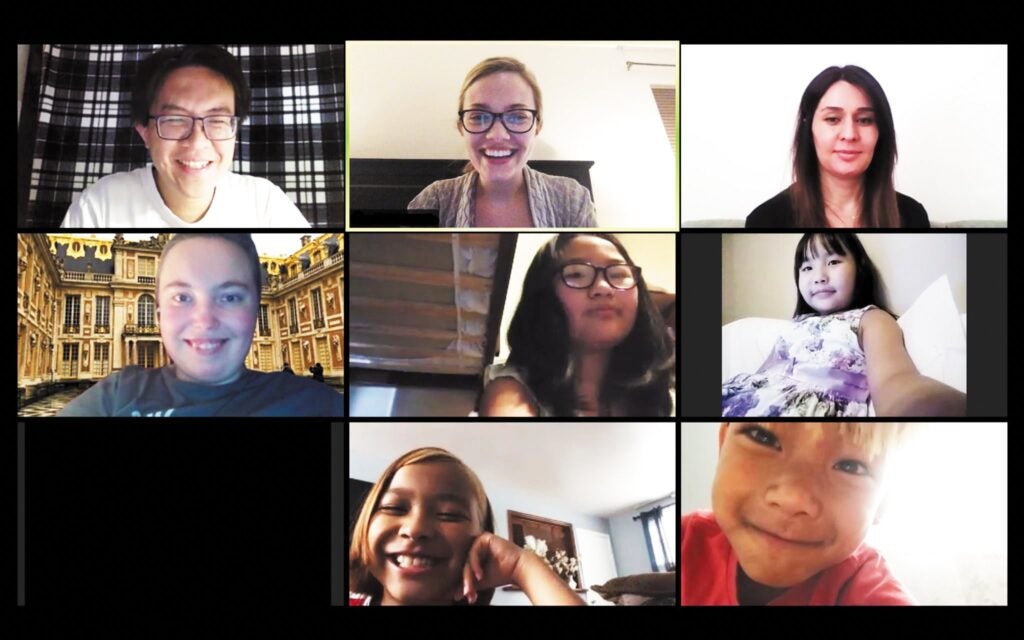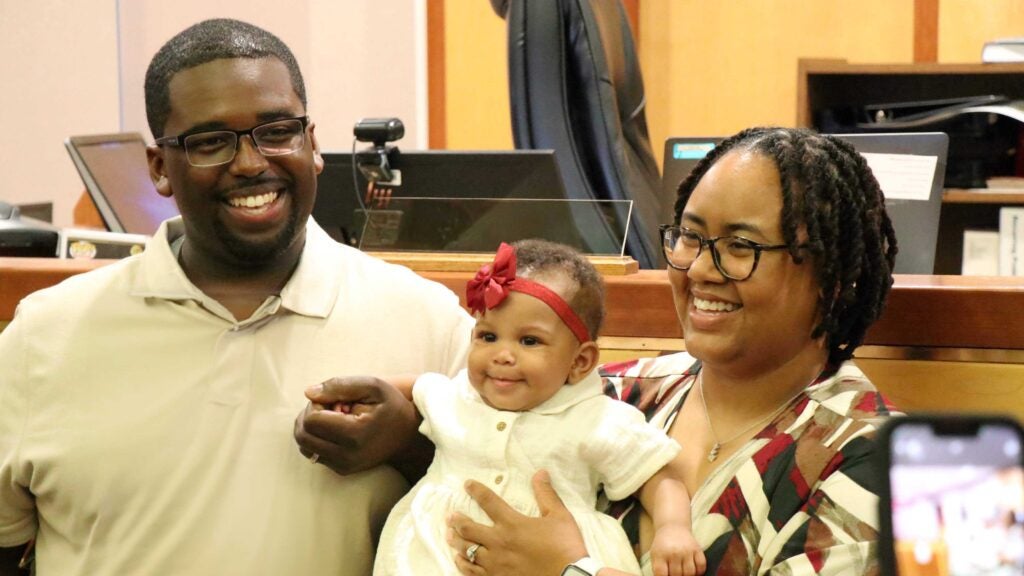Catholic Charities of TN helps refugee students navigate online learning

Although navigating technology and staying organized and motivated has been a challenge for students across the country with online learning this semester, it is even more difficult for refugee students.
In the Diocese of Nashville, Catholic Charities of Tennessee has stepped in to give these students a helping hand.
To support refugee children attending Nashville public schools virtually, the agency has matched each refugee child it serves with a “super supporter” to check in with them at least once a week and help them with all aspects of virtual learning.
Each supporter connects the family with their child’s school, so they can receive necessary correspondence; ensures they have the proper technology setup at home; and coaches them on the digital platforms and provides a translated resource packet from the public schools’ office.
This person also connects with each child’s teacher and meets with the child virtually or in person each week to provide support and make sure they are staying on track with their classes.
“One of the greatest things about children is how resilient they are,” said Anna Notestine, Catholic Charities’ refugee youth program coordinator who oversees the super supporters.
Despite the challenges the children have faced: living in refugee camps, settling in a new country, coping with the coronavirus pandemic and now navigating virtual school, “they will rise above and do really well,” Notestine told the Tennessee Register, newspaper of the Diocese of Nashville.
Catholic Charities in Nashville has offered programming for refugee youth for years, but the agency had to shift that to a virtual format this summer. That’s when staff members first started the process of making sure all the children had the devices and internet access they needed to participate in online programming.
“The summer program helped us understand where the kids were at with technology,” Notestine said.
At first, many families did not have what they needed, landing on the wrong side of the digital divide. “If you have the right technology, you can be connected, but if not, it can be very isolating, and you’re left out,” Notestine said.
The city’s public schools and Catholic Charities have been working hard to make sure all children have laptops and internet hot spots so they can access their virtual learning platforms from home.
Kadijah Lockhart, one of the agency’s super supporters, has been working closely with 17 different students from the refugee youth program to make sure they get off to a good start this school year. One of the first things she did was don her mask and gloves and make a personal visit to each family’s home to meet them and offer hands-on tech support if needed.
“I wanted the parents to be comfortable with me,” Lockhart said, since their children would be having close contact with her for at least the first quarter of school.
Her students’ comfort level with technology varies widely. “Our newest arrivals had no technology back home and have no idea how to work it,” Lockhart said.
But some older kids may have their own smartphones and be totally comfortable with navigating different types of technology.
During their one-on-one sessions, they will share their laptop screens so they can work through homework questions together. “A lot of kids text me and I can call them for homework help,” Lockhart said. “That’s what I’m here for.”
Catholic Charities super supporters are currently assisting about 200 refugee youth across all grade levels. “We’re really prioritizing the families that have arrived in the last two years, the ones most likely to need support,” Notestine said.
The children speak a number of different languages including Arabic, Swahili, Burmese and Somali. Lockhart sometimes needs a translator on the line when she’s helping a student with homework, which adds another layer of complexity to the process.
Now one month into virtual learning for this school year, students and their support teams are settling into a routine. “The most challenging part was the initial setup,” Notestine said, making sure every student had what they needed and knew how to use it.
With the technology logistics mostly settled, Catholic Charities can refocus on meeting the full range of the students’ needs and goals. They can also make sure they have access to any additional support they may need that would traditionally come through the school system, such as food or counseling.
“We want to serve them in a holistic way,” Notestine said.
Virtual learning presents a number of challenges, but some of the refugee students “love learning this way,” Notestine said. “They’re self-motivated and they like the freedom of it.”
– – –
Copyright ©2020 Catholic News Service/United States Conference of Catholic Bishops. The CNS news services may not be published, broadcast, rewritten or otherwise distributed, including but not limited to, such means as framing or any other digital copying or distribution method in whole or in part, without the prior written authority of Catholic News Service.








